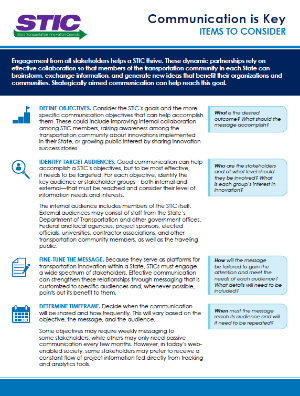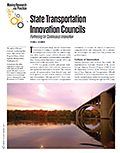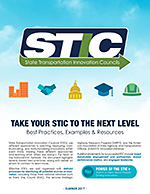News & Reports
Communication is Key, Items to Consider
Engagement from all stakeholders helps a STIC thrive. A STIC can use this Communication is Key, Items to Consider factsheet to strategically aim their communication efforts to effectively collaborate with members of the transportation community and the public about innovations that benefit their organizations and communities.
State Transportation Innovation Councils: Partnering for Continuous Innovation
The State Transportation Innovation Councils were included in a
TR News publication that focused on Moving Research into Practice. Several STICs were highlighted to show how they are creating a culture of innovation, implementing Every Day Counts technologies, and using their STIC Incentive program funding to standardize innovations.
TR News is copyright, National Academy of Sciences, Engineering, and Medicine; posted with permission of the Transportation Research Board.
Take your STIC to the Next Level: Best Practices, Examples, and Resources
State Transportation Innovation Councils (STICs) use different approaches to selecting, deploying, communicating, and institutionalizing innovations within each State. Sharing these different approaches and learning what others are doing is the heart of the National STIC Network. This document highlights several shared best practices, along with details on whom to contact to learn more.
STIC Workshop Videos (Transportation Research Board Annual Meeting, 2017)
Sponsored by the TRB Committees on Technology Transfer (ABG30) and Conduct of Research (ABG10), transportation professionals shared best practices for effective STIC's in the topic areas described below.
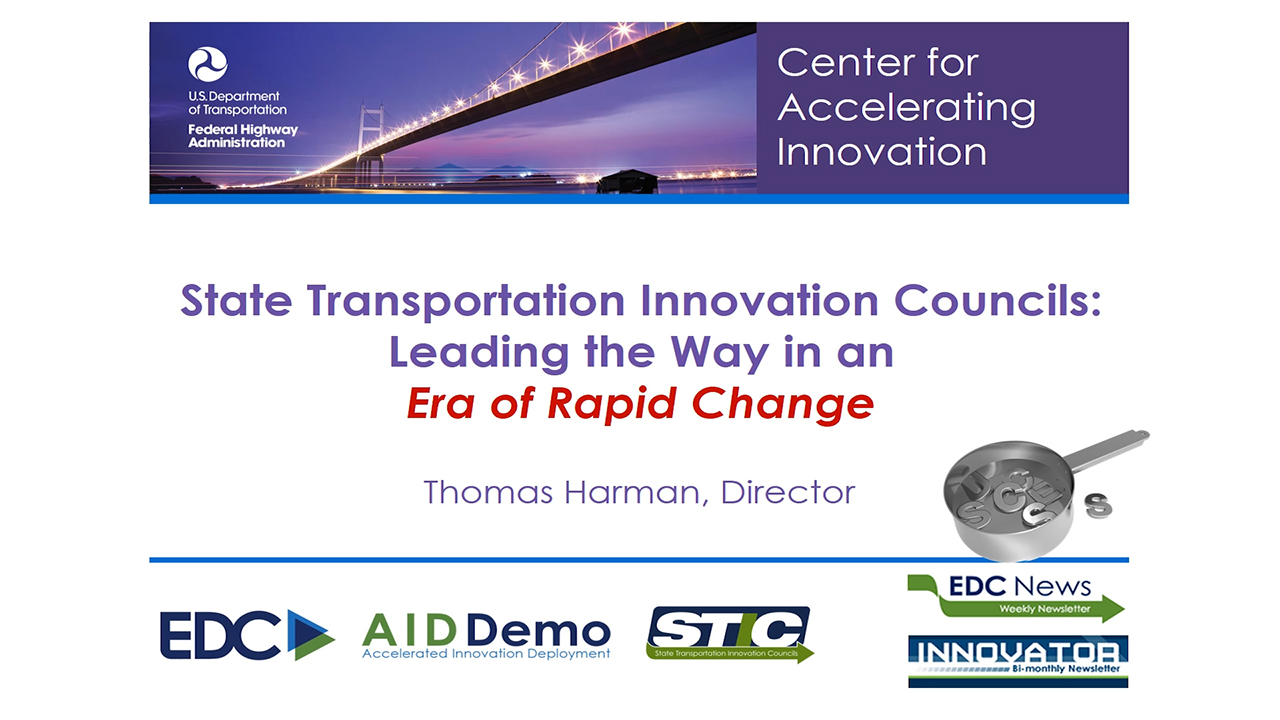
|
STIC Workshop Overview (3:31) – FHWA wants the STICs to continue to strive for successful collaboration in a rapidly changing environment. Tom Harman, FHWA's Center of Accelerating Innovation, discusses fostering, strengthening, and cultivating a culture of innovation in organizations. |
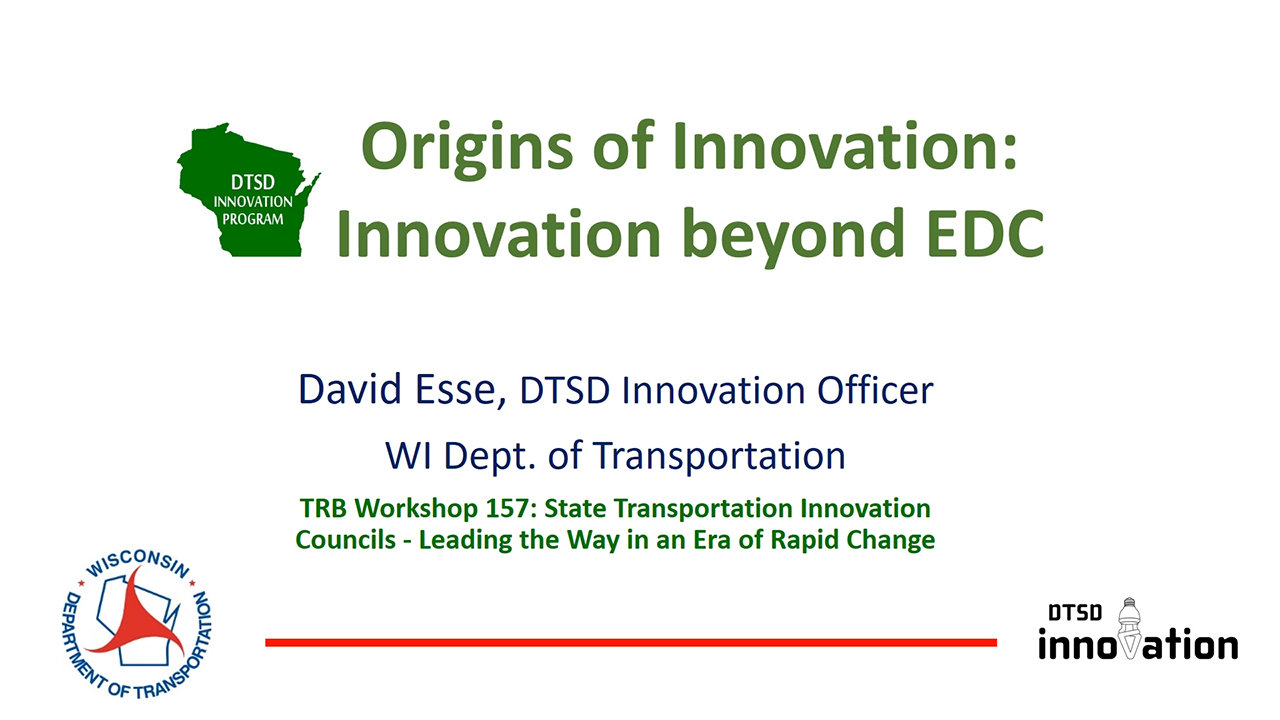 |
Origin of Innovations (7:05) – STICs can look beyond the Every Day Counts initiatives for innovations, there are many other innovations occurring in the transportation community. David Esse, Wisconsin DOT, shares how Local Innovation Teams are bringing forward new ideas into the innovation process. |
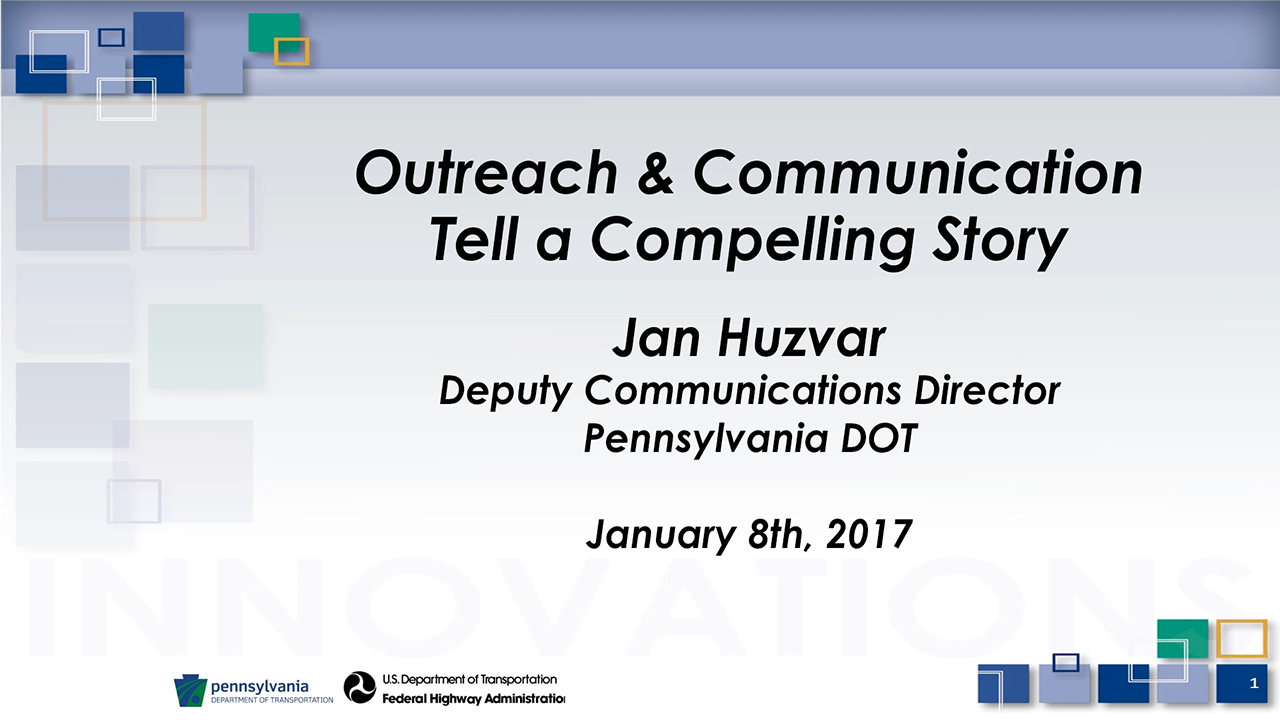 |
Outreach & Communication (7:04) – STICs highlight benefits that appeal to both the traveling public and elected officials. Jan Huvar, Pennsylvania DOT, discusses how an effective outreach and communication plan should be strategic with multiple messages and methods of communication. Telling a completing story to showcase success is key. |
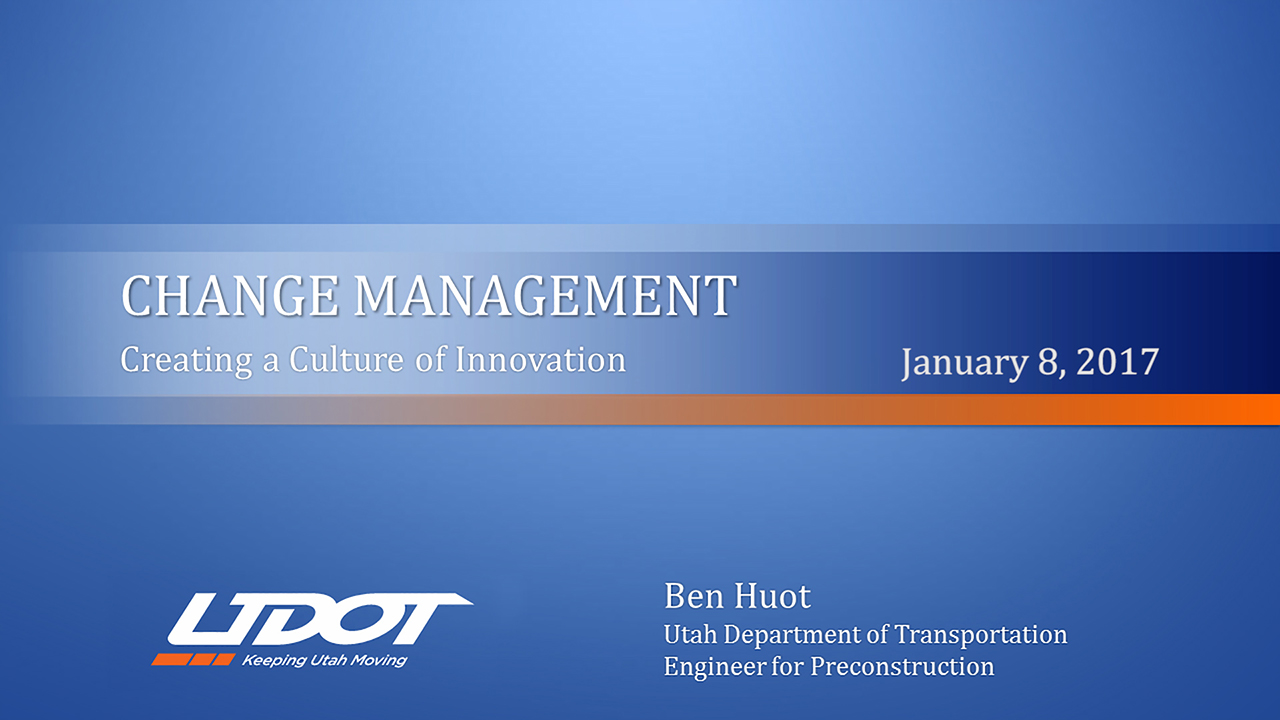 |
Change Management (10:03) – Adopting new innovations as a standard practice involves change management within each state. Ben Huot, Utah DOT, outlines principles that agencies and STICs can adopt to focus their efforts, such as fostering leadership trust throughout an organization and following through on innovation to maintain momentum. |
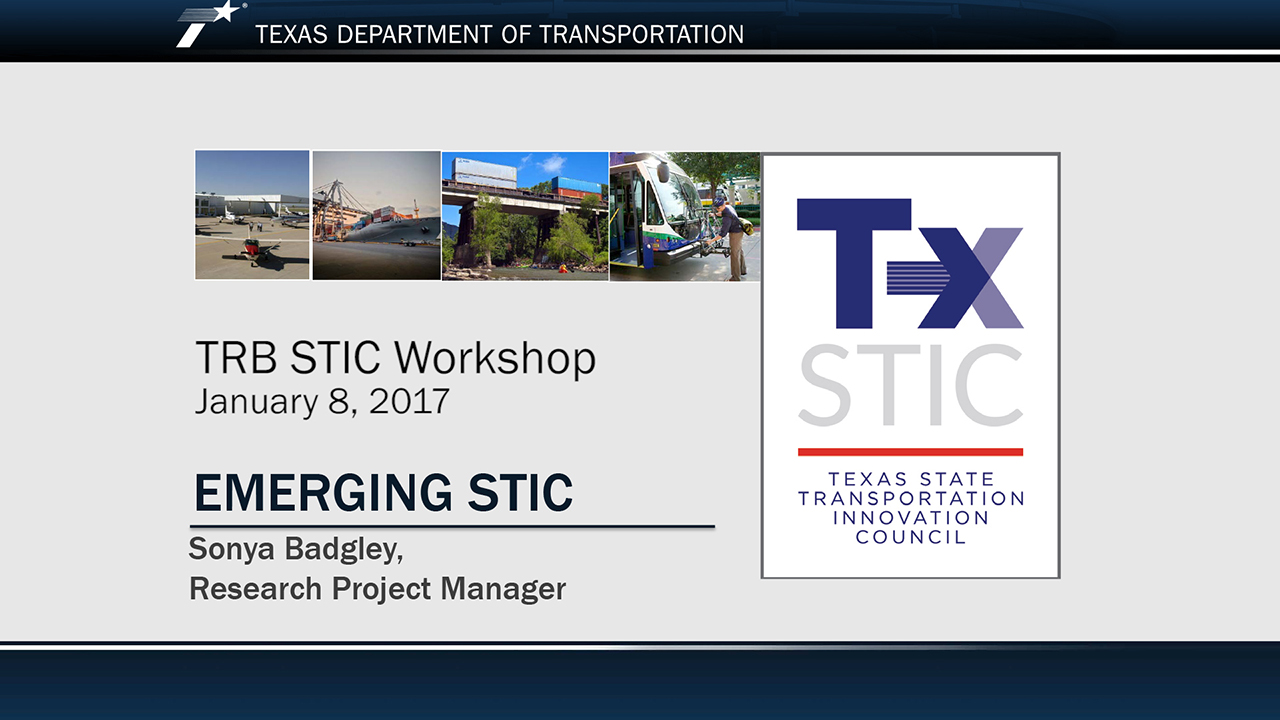 |
New/Emerging STIC perspective (9:09) – The Texas STIC is looking to learn from peers in order to decide what is best for a new STIC. Sonya Badgley, Texas DOT, presents how she looks for ways to connect with the wide range of stakeholders within a large geographical area. |
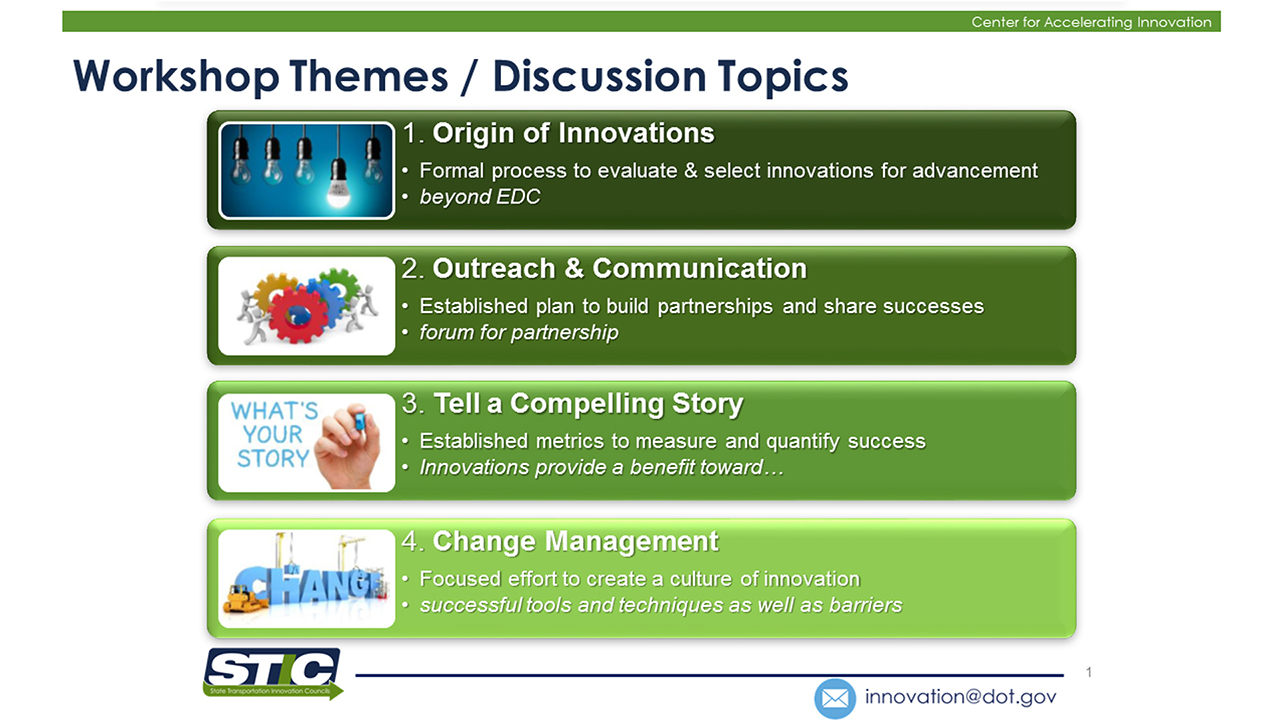 |
Report Out (10:53) – Common challenges and potential solutions heard at the working session for each of the four themes discussion above. These are some solutions that STICs can implement to overcome challenges. |


